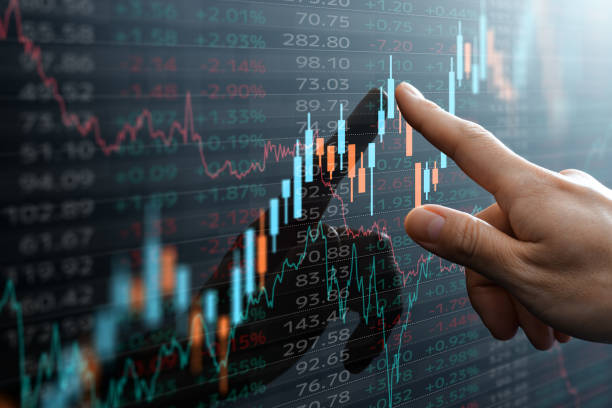The global stock markets are in a state of constant evolution, influenced by a confluence of economic, technological, and geopolitical factors.
In 2024, investors face an increasingly complex landscape, shaped by innovations and shifting global dynamics. This article examines key trends defining global stock markets, their implications for stakeholders, and strategies to navigate these changes effectively.
1. Technological Disruption: AI and Automation
AI in Stock Analysis
Artificial intelligence (AI) has revolutionized stock market analytics. Predictive algorithms now enable investors to identify trends, optimize portfolios, and mitigate risks. Hedge funds and retail traders alike utilize AI-powered tools to analyze massive data sets in real-time, providing a competitive edge.
For example, AI-driven platforms such as BlackRock’s Aladdin system can simulate multiple economic scenarios, helping fund managers make data-informed decisions. This level of sophistication reshapes how market predictions are made and highlights the growing importance of technology in investment strategies.
Rise of Automated Trading
Automation, through high-frequency trading (HFT) systems, accounts for a significant portion of market activity. HFT allows for trades to be executed in microseconds, but critics argue it creates market volatility. As regulators consider stricter policies to manage HFT, investors must assess its impact on liquidity and price stability.
2. ESG Investing: From Trend to Mainstream
The Popularity of ESG
Environmental, Social, and Governance (ESG) factors have become integral to investment decisions. In 2024, ESG-driven funds are expected to exceed $50 trillion in assets under management globally, as institutions prioritize sustainable growth.
The Challenge of Greenwashing
However, as ESG investing gains traction, concerns about “greenwashing” persist—companies exaggerating their sustainability efforts to attract investment. Investors now demand transparency and standardized reporting metrics, prompting regulators worldwide to enforce stricter ESG compliance guidelines.
3. Geopolitical Tensions and Their Market Impact
China’s Economic Shifts
China’s transition from export-driven growth to a consumption-led economy has broad implications for global markets. While this shift boosts domestic industries, it strains global supply chains, affecting tech and manufacturing sectors reliant on Chinese exports.
US vs. Emerging Markets
The ongoing rivalry between established markets like the US and emerging economies in Asia and Africa creates diverse investment opportunities. Emerging markets offer high growth potential but carry risks tied to political instability and currency fluctuations.
4. Central Bank Policies and Market Volatility
Inflation and Interest Rates
In response to persistent inflation, central banks worldwide have adopted aggressive interest rate hikes. Higher rates reduce corporate borrowing and can suppress equity prices, especially in growth sectors like technology.
Currency Fluctuations
Currency devaluation in certain regions, particularly in developing economies, adds another layer of uncertainty. For instance, a stronger US dollar makes dollar-denominated debt more expensive for countries reliant on foreign loans, potentially dampening investor confidence.
5. Retail Investor Resilience
Rise of Individual Investors
The democratization of investing, fueled by platforms like Robinhood and eToro, has empowered retail investors. Their collective influence has disrupted traditional market mechanisms, as seen in the 2021 GameStop saga. In 2024, retail investors remain a force to reckon with, shaping the trajectory of mid-cap and niche stocks.
Challenges and Education
Despite their growing power, retail investors face challenges such as misinformation and susceptibility to market hype. Enhancing financial literacy through educational initiatives is critical for sustaining their success.
6. Decentralized Finance and Tokenized Assets
DeFi and Stock Trading
Decentralized finance (DeFi) platforms are reshaping traditional stock trading by enabling peer-to-peer transactions without intermediaries. These platforms lower transaction costs and increase accessibility, particularly in underbanked regions.
Tokenization of Assets
The tokenization of stocks and real-world assets, using blockchain technology, is another emerging trend. Tokenization allows fractional ownership, enabling smaller investors to diversify portfolios by owning portions of high-value assets like real estate or rare artworks.
7. Climate Risk and Market Adaptation
Sector Vulnerability
Climate change is forcing industries to adapt or risk obsolescence. Sectors like energy, agriculture, and insurance are particularly vulnerable, while clean energy and sustainable tech emerge as growth areas.
Investment in Green Technology
Governments and private sectors are channeling investments into green technologies, creating opportunities for forward-looking investors. For example, renewable energy stocks have outperformed traditional energy indices, reflecting a paradigm shift in investor preferences.
Strategies for Navigating the Trends
- Diversification: Spreading investments across geographies, sectors, and asset classes can mitigate risks from market volatility and geopolitical instability.
- Tech Adoption: Leveraging AI and automated tools ensures informed and timely decisions.
- Focus on ESG: Prioritizing ESG-compliant companies can align portfolios with long-term sustainability trends.
- Stay Informed: Monitoring macroeconomic indicators and policy changes enables proactive adjustments to investment strategies.
Conclusion
The global stock markets are undergoing transformative shifts, driven by technological advancements, evolving investor priorities, and external pressures like geopolitics and climate change.
Understanding these trends is critical for navigating an increasingly dynamic financial landscape. By adapting to these changes, investors—whether institutional or retail—can ride the waves of uncertainty and seize emerging opportunities for growth.
Also Read
An analytical look at SoFi Stock: Performance, profitability, and prospects
An In-depth analysis of QQQ Stock: The invesco QQQ trust ETF

